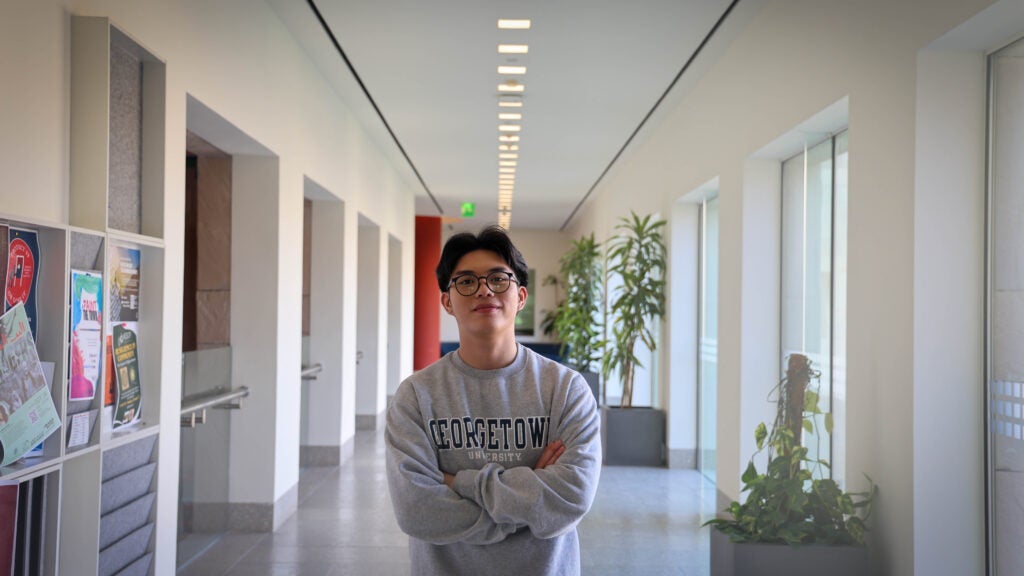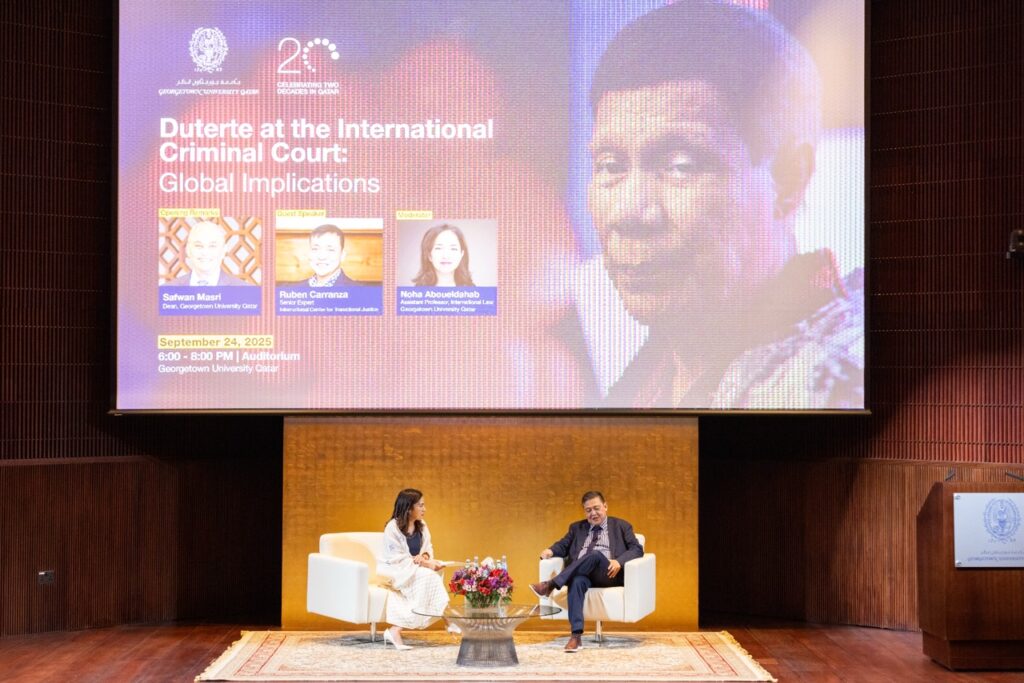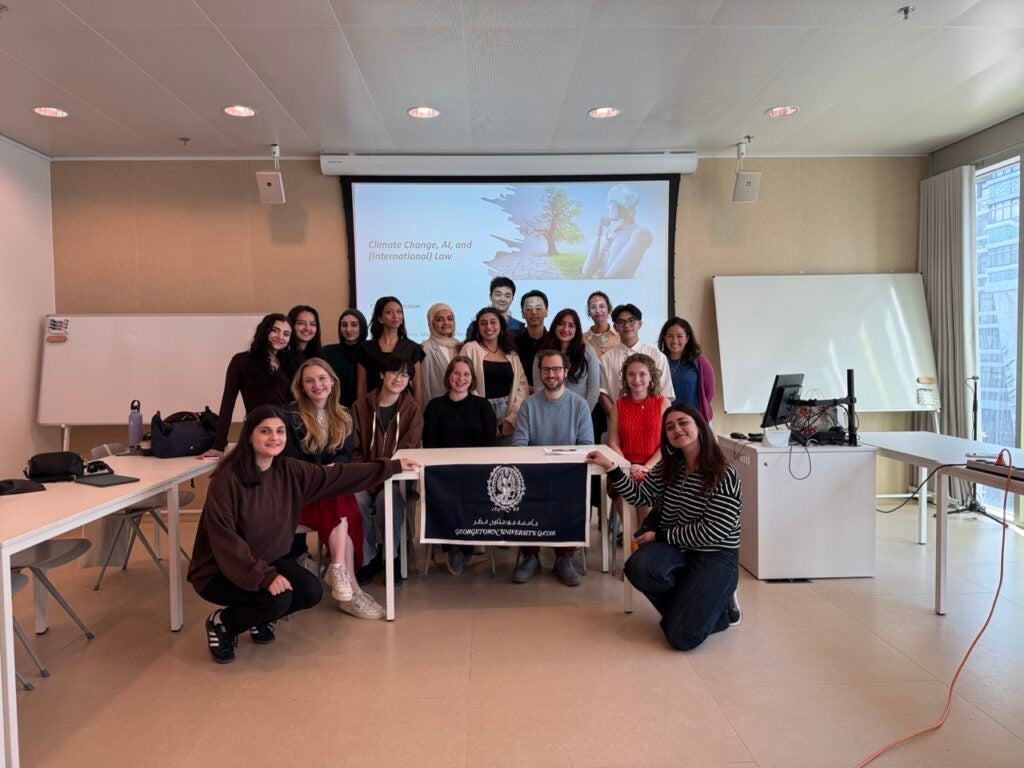I Emailed This Professor Hoping to Join Her Class – It Became the Most Influential Course I Took at GU-Q

By Jay Pacer, a senior majoring in International Politics with an independent minor in International Law.
This story is part of the Desert Hoya Blog, written by GU-Q students about their experiences and life as members of the Georgetown community in Qatar.
At GU-Q, certain professors’ names become part of how students help one another to navigate this place. These names are passed along with a simple recommendation such as, “take her class if you get a chance.”
That is exactly how I first heard about Professor Noha Aboueldahab, long before I had any reason to think I would end up writing about the difference she made in the way I study, the way I write, and the way I understand what education here is supposed to do.
I met her first by email, asking more nervously than I wanted to admit, if I could join her class ‘Transitional Justice’ as a sophomore even though the course was built for upperclassmen who already spoke the language of international law. Bracing for the polite “not yet,” I instead received a yes that carried a tone of excitement from her and the assumption that I could meet the expectations and manage the workload. In that small exchange, my path shifted more than any other class ever did. It pushed me from being cautiously interested in international law to realizing it was something I could actually pursue.
What stayed with me, as the weeks accumulated into a vocabulary and then a discipline, was how she encouraged without all the theatrics: high standards were stated plainly, responsibilities were entrusted early, and a workload substantial enough that made me read closely and write with intention. I felt myself getting sharper without being made small, and when the semester was over, I could see, in my own pages and in my notes, evidence that I was thinking at a different altitude. Not to mention how I exhausted two full notebooks just filled with content from her class.
Just as important, she made room for who I am without turning it into something overtly othered. When we hosted Attorney Ruben Carranza to discuss political accountability in the Philippines, it was not staged as a token nod to “diversity.” It was treated as a serious and substantive conversation held to the same standard as any other international issue. Only then did I realize how rarely your own country is treated with that kind of respect in an academic setting until you see it happen in the room you’re sitting in.

As part of the class, we traveled to The Hague with Professor Noha and this confirmed what the classroom had begun: that international law is not only a field to be studied but a set of institutions and decisions you can watch up close. Seeing a professor you trust move through those spaces changes how you imagine your own next steps.

When I connected the dots that started with the random advice, “take her class,” I saw how everything drew a common thread. From how she turned encouragement into responsibility and that possibility into practice, I can confidently say that when I leave after graduation, the direction and discipline I carry will have her fingerprints on them. This is proof that the most influential people on this campus don’t necessarily perform inspiration, they practice it, and they let you practice alongside them, which is exactly what happened to me.
So if someone tells you, “take them if you get the chance,” don’t treat it as small talk. I followed that advice, and it gave me a mentor, a discipline, and a direction after graduation. To that person, I’m grateful that I listened to you.
“The posts and comments on this blog are the views and opinions of the author(s). Posts and comments are the sole responsibility of the authors. They do not represent the views, opinions or policies of the University.”